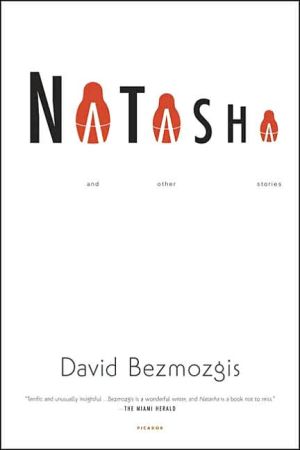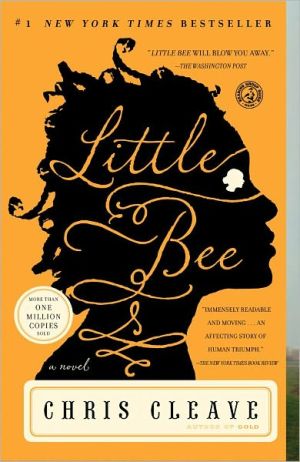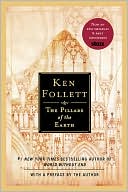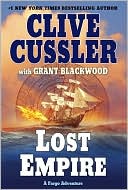Natasha and Other Stories
A dazzling debut, and a publishing phenomenon: the tender, savagely funny collection from a young immigrant who has taken the critics by storm.\ Few readers had heard of David Bezmozgis before May 2003, when Harper's, Zoetrope, and The New Yorker all printed stories from his forthcoming collection. In the space of a few weeks, America thus met the Bermans--Bella and Roman and their son, Mark--Russian Jews who have fled the Riga of Brezhnev for Toronto, the city of their dreams.\ Told through...
Search in google:
A dazzling debut, and a publishing phenomenon: the tender, savagely funny collection from a young immigrant who has taken the critics by storm.Few readers had heard of David Bezmozgis before May 2003, when Harper's, Zoetrope, and The New Yorker all printed stories from his forthcoming collection. In the space of a few weeks, America thus met the Bermans—Bella and Roman and their son, Mark—Russian Jews who have fled the Riga of Brezhnev for Toronto, the city of their dreams.Told through Mark's eyes, the stories in Natasha possess a serious wit and uniquely Jewish perspective that recall the first published stories of Bernard Malamud and Philip Roth, not to mention the recent work of Jhumpa Lahiri, Nathan Englander, and Adam Haslett.The Washington Post - Keith Gessen[Bezmozgis] has an understated, just-telling-it-like-it-happened style that, if not impressive, is remarkably self-assured; it is attuned to the stories he is telling, and its understatement is a function of the narrator's doubt.
Natasha\ And Other Stories \ \ By David Bezmozgis \ Farrar, Straus and Giroux\ Copyright © 2004 Nada Films, Inc.\ All right reserved.\ ISBN: 0-374-28141-6 \ \ \ Chapter One\ GOLDFINCH WAS FLAPPING CLOTHESLINES, a tenement delirious with striving. 6030 Bathurst: insomniac scheming Odessa. Cedarcroft: reeking borscht in the hallways. My parents, Baltic aristocrats, took an apartment at 715 Finch fronting a ravine and across from an elementary school-one respectable block away from the Russian swarm. We lived on the fifth floor, my cousin, aunt, and uncle directly below us on the fourth. Except for the Nahumovskys, a couple in their fifties, there were no other Russians in the building. For this privilege, my parents paid twenty extra dollars a month in rent. \ In March of 1980, near the end of the school year but only three weeks after our arrival in Toronto, I was enrolled in Charles H. Best elementary. Each morning, with our house key hanging from a brown shoelace around my neck, I kissed my parents goodbye and, along with my cousin Jana, tramped across the ravine-I to the first grade, she to the second. At three o'clock, bearing the germs of a new vocabulary, we tramped back home. Together, we then waited until six for our parents to return from George Brown City College, where they were taking their obligatory classes in English.\ In the evenings we assembled and compiled our linguistic bounty.\ Hello, havaryew?\ Red, yellow, green, blue.\ May I Please go to the washroom?\ Seventeen, eighteen, nineteen, twenny.\ Joining us most nights were the Nahumovskys. They attended the same English classes and traveled with my parents on the same bus. Rita Nahumovsky was a beautician, her face spackled with makeup, and Misha Nahumovsky was a tool and die maker. They came from Minsk and didn't know a soul in Canada. With abounding enthusiasm, they incorporated themselves into our family. My parents were glad to have them. Our life was tough, we had it hard-but the Nahumovskys had it harder. They were alone, they were older, they were stupefied by the demands of language. Being essentially helpless themselves, my parents found it gratifying to help the more helpless Nahumovskys.\ After dinner, as we gathered on cheap stools around our table, my mother repeated the day's lessons for the benefit of the Nahumovskys and, to a slightly lesser degree, for the benefit of my father. My mother had always been a dedicated student and she extended this dedication to George Brown City College. My father and the Nahumovskys came to rely on her detailed notes and her understanding of the curriculum. For as long as they could, they listened attentively and gropled toward comprehension. When this became too frustrating, my father put on the kettle, Rita painted my mother's nails, and Misha told Soviet jokes.\ In a first-grade classroom a teacher calls on her students and inquires after their nationality. "Sasha," she says. Sasha says, "Russian." "Very good," says the teacher. "Arnan," she says. Arnan says, "Armenian," "Very good," says the teacher. "Lubka," she says. Lubka says, "Ukraininan," "Very good," says the teacher. And then she asks Dima. Dima says, "Jewish." "What a shame," says the teacher, "so young and already a Jew."\ (Continues...)\ \ \ \ \ Excerpted from Natasha by David Bezmozgis Copyright © 2004 by Nada Films, Inc. . Excerpted by permission.\ All rights reserved. No part of this excerpt may be reproduced or reprinted without permission in writing from the publisher.\ Excerpts are provided by Dial-A-Book Inc. solely for the personal use of visitors to this web site. \ \
Tapka 1Roman Berman, massage therapist19The second strongest man37An animal to the memory65Natasha79Choynski111Minyan127
\ From the Publisher\ “Extraordinary...[Recalls] the work of Babel, Roth, Saul Bellow, and so many others. Yet Bezmozgis makes these characters, and the state of marginality itself, uniquely his. This hysterical, merciless, yet open-hearted excavation of a Jewish family in the process of assimilating gives his literary predecessors a run for their money.” —Daniel Schifrin, Los Angeles Times Book Review\ “An authority one usually finds only in more seasoned writers.” —Meghan O’Rourke, The New York Times Book Review\ “Scary good...Not a line or note in the book rings false.” —Esquire\ “An effervescent debut...A familiar tale of dislocation and assimilation with enough humor, honesty, and courage to make it new again...If the last page of ‘Tapka’ doesn’t stop your heart, maybe it was never really beating.” —O magazine\ “A latter-day Bernard Malamud...It’s astonishing how Bezmozgis can summon up the émigré community with such clarity and economy. David Bezmozgis isn’t almost there. He has arrived, fully mature and wise. These stories aren’t just superbly crafted investigations of a particular people and place, but profound illuminations of what it means to grow up in an uncertain, ever-changing world.” —Dan Cryer, Newsday\ “A stunning first collection, characterized by a painful honesty and clarity of vision....Like Gogol, Bezmozgis is acutely aware of his characters’ shortcomings; as Gogol does, Bezmozgis writes with compassion, quietly reminding us of the hidden beauty within human imperfection.” —Julie Orringer, The Believer\ “Dazzling, hilarious, and hugely compassionate narratives [written with] freshness and precision...Readers will find themselves laughing out loud, then gasping as Bezmozgis brings these fictions to the searing, startling and perfectly pitched conclusions that remind us that, as Babel said, ‘no iron can stab the heart so powerfully as a period put in exactly the right place.’” —Francine Prose, People\ \ \ \ \ \ \ Meghan O'RourkeWhat is most impressive about this book is Bezmozgis' sense of story; at his best, he has an authority one usually finds only in more seasoned writers. Each story circles around a transaction that is a vehicle for broad irony (the traditional kind). In ''An Animal to the Memory,'' a young Mark is packed off to Hebrew school, where his mother sunnily hopes he will learn ''what it was to be a Jew'' -- the kind of thing that's impossible back in his hometown in Latvia. Mark, who presciently senses that an attenuated national and ethnic identity may be what serves him best, does in some sense learn ''what it was to be a Jew'' when his teacher humiliates and terrifies him on Holocaust Remembrance Day by forcing him to shout ''I'm a Jew'' until, his will broken, he weeps. In Bezmozgis' vision, to be a Jewish immigrant is to be at the mercy of the totalizing preconceptions not only of anti-Semites but of those who live in the shadow of the authenticity of their Old World ancestors. \ — The New York Times\ \ \ Keith Gessen[Bezmozgis] has an understated, just-telling-it-like-it-happened style that, if not impressive, is remarkably self-assured; it is attuned to the stories he is telling, and its understatement is a function of the narrator's doubt. \ — The Washington Post\ \ \ \ \ Publishers WeeklyLike the author of this remarkable debut collection of seven linked stories, the protagonist, Mark Berman, emigrated with his parents from Latvia to Toronto in 1980. Bezmozgis writes with subtlety and control, moving from Mark's boyhood arrival in Canada to his adult reckoning with his grandparents' decline, rendering the immigrant experience with powerful specificity of character, place and history. "This was 1983, and as Russian Jews, recent immigrants, and political refugees, we were still a cause. We had good PR," he writes in "Roman Berman, Massage Therapist," about the humiliations of turning to well-meaning but condescending Canadian Jews for financial help. Bezmozgis also considers North American Jewish identity, as in "An Animal to the Memory," which interrogates the centrality of the Holocaust and victimhood to the Jewish sense of self. His stories are as compassionate as they are critical. In "Minyan," Mark attends synagogue with his grandfather: "Most of the old Jews came because they were drawn by the nostalgia for ancient cadences, I came because I was drawn by the nostalgia for old Jews. In each case, the motivation was not tradition but history." The collection's strength lies in how Bezmozgis layers the specifics of Russian-Jewish experience with universal childhood and adolescent dilemmas. The title story, about Mark's sexual escapades with his 14-year-old cousin by marriage, evokes both his stoner, suburban "subterranean life" and the numbing exigencies of Natasha's adolescence in Russia. In "Tapka," about the fate of a cosseted dog, Bezmozgis captures the insecurity and loneliness of recent immigrants while suggesting a child's guilty psychology with utter believability. These complex, evocative stories herald the arrival of a significant new voice. Agent, Ira Silverberg. (June) Forecast: Jeffrey Eugenides compares Bezmozgis to Chekhov and Babel, while T.C. Boyle says his prose "reads like the work of a past master." FSG is pushing this lead spring title with an author tour of at least seven cities (they've already sponsored a pre-publication tour dubbed "Bezmozgispalooza") and national advertising, almost guaranteeing that Natasha will be one of the rare collections that hits big. Copyright 2004 Reed Business Information.\ \ \ \ \ Library JournalBezmozgis's stunning debut collection centers on the Berman family, Latvian Jews who have immigrated to Toronto to escape stagnant Brezhnev-era Soviet life. Stoic father Roman, anxious mother Bella, and hapless but endearing son Mark each confront the sadness of exile and the strange promise of a "better life." In "The Second Strongest Man," friends visiting Roman commend him on his success and his decision to leave (in a later story, another visiting Russian confirms "Russia is shit"), even as he confides to one "I often think of going back." In "Tapka," young Mark unwittingly causes the death of the neighbor's dog when an experiment in English goes awry. When Roman offers to help her find a new one, the old woman, also a recent Russian migr , can only lament, "A new one? What do you mean, a new one? New, everything we have now is new." The title story finds Mark fumbling toward something like love with the bold, intense daughter of his uncle's new wife. Taken alone, these stories are charming and pitch-perfect; together, they add up to something like life itself: funny, heartbreaking, terrible, true. Last year, a few pieces were published in Harper's, Zoetrope, and The New Yorker. Essential for fiction collections. [Previewed in Prepub Alert, LJ 2/1/04.]-Tania Barnes, "Library Journal" Copyright 2004 Reed Business Information.\ \ \ \ \ School Library JournalAdult/High School-Arriving with his family from Latvia in 1980, six-year-old Mark Berman embarks on his life in Toronto. In a series of seven interrelated stories, he shares his experiences in his new land. He begins with a poignant tale of adjustment and a neighbor's dog; describes his coming of age with a 14-year-old, sadly sophisticated Russian cousin by marriage, Natasha; and, finally, relates how as an adult he moves his newly widowed grandfather into a retirement home. These stories are both universal and yet very much of a time and place. Mark is defensive about his father's status and belligerent in his Jewish school, spends his teen years stoned on pot, and watches as the members of his small, close family age and die. His family bears the physical and emotional scars of World War II and years of Soviet oppression. He is very much an immigrant, yet observes the sterility of suburbia with a jaded eye. His love and respect for his parents waxes and wanes through adolescence and young adulthood. Quietly compelling, the stories will attract teens through the commonality of feeling, yet give them a wider perspective either of a life they don't know or a way to communicate a life they might be living. This small treasure trove of characters will stay in readers' minds for a long time.-Susan H. Woodcock, Fairfax County Public Library, Chantilly, VA Copyright 2004 Reed Business Information.\ \ \ \ \ Kirkus ReviewsSeven stories in a debut collection, Farrar, Straus's lead title for spring (treated to an unheard-of, for FSG, prepublication tour), chronologically trace the experiences of a family of Russian Jews living in Toronto. Thirty-year-old Latvian-born (now Canadian) author Bezmozgis introduces us to the stories' common narrator, Mark Berman, as a six-year-old in "Tapka," which recounts Mark's parents' and his own efforts to learn English, their relationship with a childless pair of fellow immigrants devoted to their pet dog, and the painful consequences of Mark's carelessness, expressed as he brandishes his new language skills. The difficulties of assimilation into an unfamiliar culture are experienced by Mark's father as he awkwardly attempts to establish his own business ("Roman Berman, Massage Therapist"), a cocky young weightlifter from the old country who loses his celebrity and self-assurance at an international competition ("The Second Strongest Man"), and preadolescent Mark himself, as he keeps getting into fights at Hebrew school and is admonished, on "Holocaust Day," by a stern, sorrowful rabbi ("An Animal to the Memory"). In the wry title story, 16-year-old Mark is introduced to sex and confirmed in other bad habits by his precociously jaded younger cousin Natasha. This is the funniest, and loosest of the tales, notable also for the peripheral character of Mark's phlegmatic criminal "contact" Rufus, a bookish drug peddler with amusingly diversified business interests. The two final stories widen Mark's understanding-of the fact of mortality, during the summer when his "researches" into the history of an obscure Jewish heavyweight boxer ("Choynski") coincide with his belovedbabushka's death; and of the embracing comfort of the religion he has taken for granted, when his widowed grandfather enters an old age home threatened by jealousy and prejudice ("Minyan"). Bezmogis's spare, confrontational tales thus take many unexpected turns, but their humanity and poignancy strike the deepest notes. Shades of Isaac Babel, Leonard Michaels, and Aleksandar Hemon in a nevertheless irresistibly original first book. (The stories originally appeared, in "slightly different form," in the New Yorker, Harper's, Zoetrope, etc.)Author tour. Agent: Ira Silverberg/Donadio & Olson\ \








